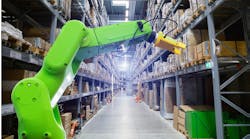Download this article in PDF format.
At a time when COVID-19 is causing disruptions in the global electronics supply chain, the need for a more sustainable, environmentally responsible approach to manufacturing and reusing electronics continues to grow.
Ready to help improve how electric and electronic equipment waste is reused and recycled, Polytechnique Montréal launched the Canada-wide Collaborative Research and Training Experience in Sustainable Electronics and Eco-Design (CREATE SEED) initiative.
CREATE SEED will bring together 20 Canadian and international universities and industrial partners who will work together to improve the way electric and electronic equipment waste (“e-waste”) is reused and recycled. The group will also be working to promote eco-design.
E-Waste is a Big Problem
Founded in 1873, Polytechnique Montréal is one of Canada’s largest engineering education and research institutions and ranks first in Québec in terms of the scope and range of its engineering research.
The institution has pinpointed e-waste as a key area of concern for both current and future generations. “Incessant demand for electronic equipment produces huge amounts of waste,” the university states in a press release. “Although e-waste contains substances that are hazardous to health and the environment, it also contains precious metals that are financially appealing to the recycling industry.”
For example, it says one ton of mobile phones contains about 100 times more gold than a ton of gold ore. “The CREATE SEED initiative intends to optimize the way valuable materials are gathered from e-waste,” states Polytechnique Montréal, “while at the same time rethinking how the electronics supply chain functions.”
Leading the Effort
An organic electronics expert, Polytechnique Montréal Professor Clara Santato is leading the CREATE SEED effort. Her team and partners have been awarded $1.65 million over the next six years for this initiative, granted by the federal government’s Natural Sciences and Engineering Research Council of Canada (NSERC) CREATE program.
With 50 researchers, students and partners onboard, the group’s first objective is to change conceptual thinking paradigms about electronics, break down information silos and eliminate blind spots. As part of its mission, the group wants to introduce a radically different approach to training the next generation of engineers, designers and analysts.
As part of its research, CREATE SEED will rethink electronic product design, using the best of conventional inorganic electronics and emerging organic technologies, combined with the development of manufacturing processes that minimize e-waste’s environmental footprint.
Some of CREATE SEED’s initial ideas include smartphones made from biodegradable, upgradable components (e.g., organic transistors, organic light-emitting diodes) that also use organic materials (melanins, tannins, lignin and green chemistry materials) to curb e-waste production and its associated pollution.
Who’s Involved?
CREATE SEED’s 20 researchers come from Polytechnique Montreal, Institut national de la recherche scientifique (INRS), McGill University, the University of Toronto, the University of Waterloo and the University of British Columbia. It is also supported by the National Research Council of Canada, École de technologie supérieure (ETS), HEC Montréal, the Printability and Graphic Communications Institute, the Université de Montréal, the Université de Sherbrooke, New York City University’s Queen’s College, the University of Nigeria – Nsukka and United Nations University.
Partners involved with this new initiative include the European Chemical Society, Bioastra Technologies, Celestica, MiQro Innovation Collaborative Centre (C2MI), Optel Group, InserTech, Intel, Medtronic, Sacré-Davey Engineering and Pyrocycle.










